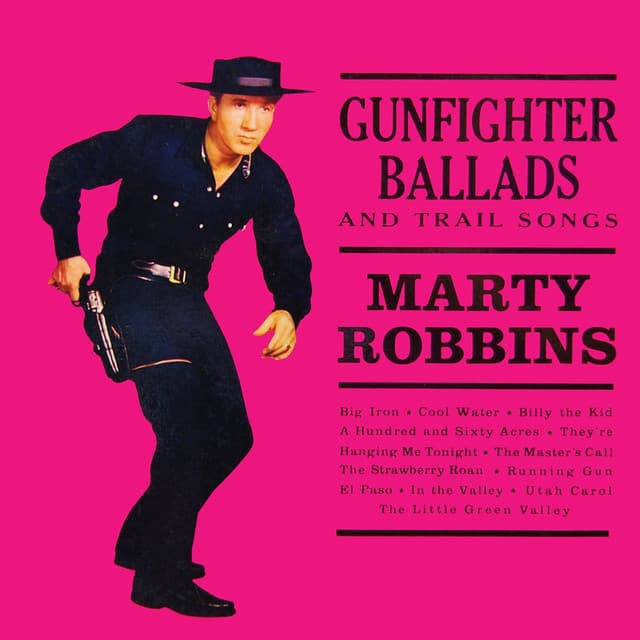
An Enduring Ballad of Cowboy Life and Loss
Marty Robbins’ “The Strawberry Roan” isn’t just a song; it’s a window into the soul of the American West, a timeless piece of cowboy folklore set to music. Released in 1959 on his highly successful album, Gunfighter Ballads and Trail Songs, this track—which is a traditional cowboy poem and song—cemented Marty Robbins‘ reputation as a master storyteller, particularly of Western narratives. While this album is perhaps best remembered for the colossal hit “El Paso” (which topped the Billboard Hot 100 chart), “The Strawberry Roan” was a vital part of the collection that resonated deeply with listeners. As a traditional folk song, it didn’t chart in the contemporary pop style that “El Paso” did, but its place on the revered Gunfighter Ballads and Trail Songs album ensured its perpetual success and high standing among lovers of Western music. This was an era where the Western genre was experiencing a massive cultural boom, and Robbins‘ album was, and remains, the genre’s zenith.
The story woven into “The Strawberry Roan” is one of classic struggle and hubris, a vivid narrative deeply rooted in the harsh realities of the open range. It tells of a boastful, perhaps slightly green, cowboy who brags about his ability to ride any horse. This swagger leads him to a confrontation with the infamous “Strawberry Roan,” a wild, un-broken, and notoriously difficult horse. The horse, with its distinctive color—a mixture of white and red hairs—is a symbol of untamed nature and the limits of human skill. The cowboy, full of youthful confidence and spurred on by his own words, takes up the challenge. What follows is not a glorious victory, but a grueling, humiliating, and ultimately tragic defeat. The horse throws him so violently that the cowboy is left broken—not just physically, but his spirit and pride are utterly shattered.
This deep-seated meaning transcends the simple tale of a cowboy and a horse. At its heart, “The Strawberry Roan” is an allegory about the humbling power of nature and the inevitable fall that follows excessive pride. It’s a cautionary tale whispered around campfires for generations: no matter how skilled you are, there’s always something wilder, stronger, and more untamable. For those of us who grew up in simpler times, when a person’s word and mettle were their true currency, this song evokes a powerful sense of nostalgia. It reminds us of an era where life’s lessons were often delivered with a swift, painful jolt, and where genuine respect for the formidable forces of the world was paramount.
Marty Robbins’ rendition is particularly poignant. His delivery is understated yet deeply emotive, allowing the lyrics—which are essentially an oral tradition set to a simple, driving melody—to carry the full weight of the story. There’s a certain world-weariness in his voice that suggests he’s seen a few proud men humbled by life’s “strawberry roans.” This isn’t the slick production of today; it’s pure, unadulterated storytelling—a voice, a guitar, and a legend. Listening to it now, the crackle of the record perhaps only adds to the atmosphere, transporting us back to a time when radio waves brought the stories of faraway ranches right into our living rooms. It’s a bittersweet memory, this song, of an American ideal that was perhaps as wild and un-tameable as the roan itself. It stands not just as a great country song, but as a monumental piece of American cultural history, lovingly preserved by the velvet voice of Marty Robbins. It’s a ballad for those who’ve been thrown by life and found the quiet strength to stand up, dust themselves off, and ride another day. Robbins gifted us a piece of authentic Americana, a tune that continues to echo in the canyons of our collective past.